Are you looking to lend a helping hand in the medical field through volunteer work? It's important to have a medical clearance letter that not only verifies your health status but also ensures that you meet the necessary requirements for volunteering. In this article, we'll explore what to include in your letter, tips for drafting a professional yet friendly tone, and how it can enhance your application. So, if you're ready to make a difference and need guidance on crafting the perfect volunteer medical clearance letter, read on!
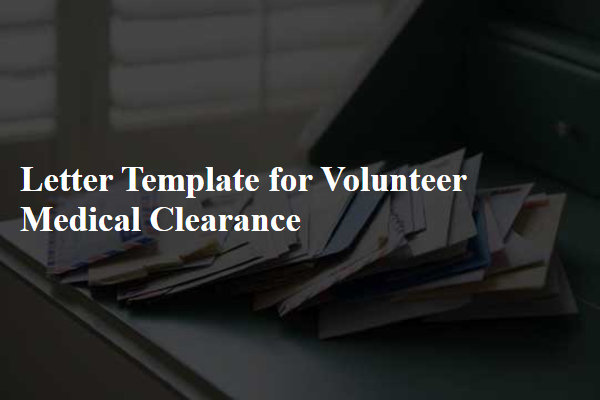
Personal Information Section
In the Personal Information Section of a volunteer medical clearance form, individuals should provide essential data for identification and contact purposes. Include full name as registered on legal documents, date of birth (formatted as MM/DD/YYYY for clarity), and current residential address (including street number, city, state, and zip code). Additionally, state phone number (with area code) for emergency contact, and include email address for further communication. It is crucial to indicate any preferred methods of contact to ensure prompt responses regarding medical status and volunteer opportunities within organizations dedicated to health services, like Red Cross or Mercy Corps. Emergency contact information is also necessary, detailing the name, relation, and phone number of a person who can be reached in case of unforeseen medical situations during volunteering events.
Health History Questionnaire
Volunteer medical clearance involves a detailed Health History Questionnaire to assess potential health risks associated with the volunteer activities. This form typically includes personal information such as age, weight, and height to evaluate general health status. It often contains sections to inquire about pre-existing medical conditions, such as asthma, diabetes, or heart disease, along with medication regimens to ensure safety. Allergies, especially to medications like penicillin or latex, are crucial to note. Vaccination history, particularly for communicable diseases like influenza or hepatitis, may be requested to protect both the volunteer and the community served. Lastly, a section on recent surgeries or significant injuries helps determine physical readiness for volunteer tasks, such as lifting, moving patients, or participating in emergency response scenarios. Completion of this questionnaire is essential for ensuring a safe and effective volunteering experience.
Medical Examination Requirements
Volunteer medical clearance requires a thorough medical examination to ensure participant safety. A comprehensive health assessment should include vital checks such as blood pressure, heart rate, and respiratory function, typically conducted by certified healthcare professionals. Immunization status should be reviewed, paying particular attention to vaccines for preventable diseases, such as measles, mumps, rubella (MMR), and tetanus. Additionally, a complete blood count (CBC) may be required to screen for underlying health issues. Drug screening tests, based on organizational policy, could also be part of the process. Medical documentation must be submitted prior to the commencement of volunteer activities at health-related events. Compliance with local regulations and guidelines from health organizations, such as the World Health Organization (WHO), is crucial for maintaining a safe volunteer environment.
Physician's Assessment and Signature
Volunteer medical clearances require a comprehensive assessment from a licensed physician, including specific evaluations such as physical examinations, immunization records, and health history. The physician must confirm the volunteer's ability to perform necessary tasks without any medical restrictions. Documentation should include vital signs measurements, laboratory results, and any recommendations for follow-up if necessary. The physician's signature, alongside the date of the assessment, validates the clearance and ensures that the volunteer meets the health requirements for their intended roles in emergency response, humanitarian efforts, or community health initiatives.
Emergency Contact Information
Emergency contact information is crucial for ensuring the safety and well-being of individuals during volunteer activities. This information typically includes the name of the emergency contact (such as a family member or close friend), their relationship to the volunteer (spouse, sibling, parent), and their phone number (preferably a mobile number for immediate accessibility). Address details (including city and state) may also be requested for further identification. In case of medical emergencies, this information allows medical personnel or event coordinators to quickly reach someone who can provide important health history and knowledge about any potential allergies or medical conditions affecting the volunteer. Collecting comprehensive emergency contact details improves response times and enhances safety protocols during events or volunteering opportunities.
Letter Template For Volunteer Medical Clearance Samples
Letter template of volunteer medical clearance for international missions.
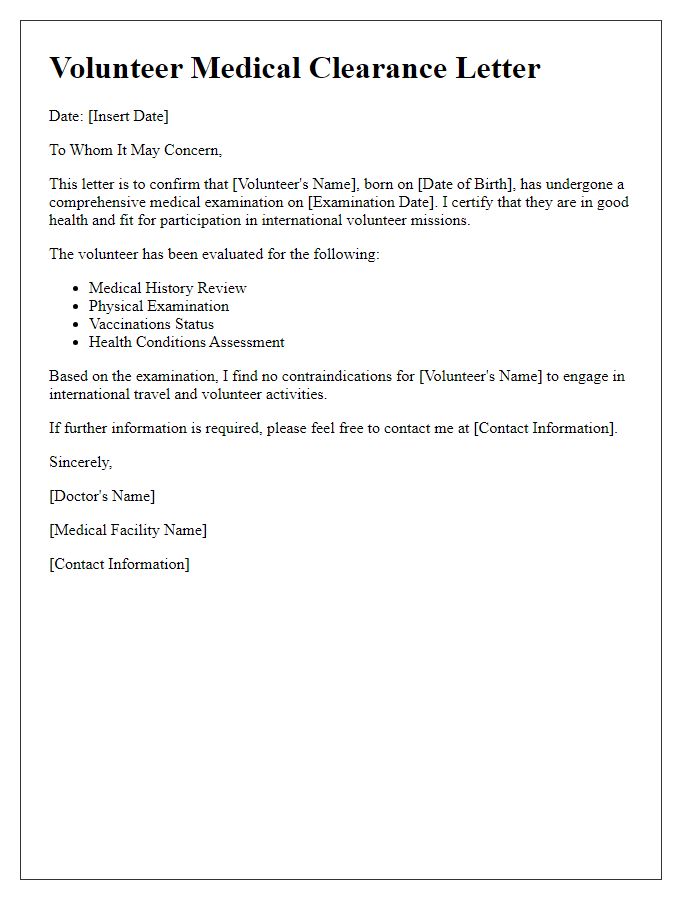
Letter template of volunteer medical clearance for school volunteer activities.
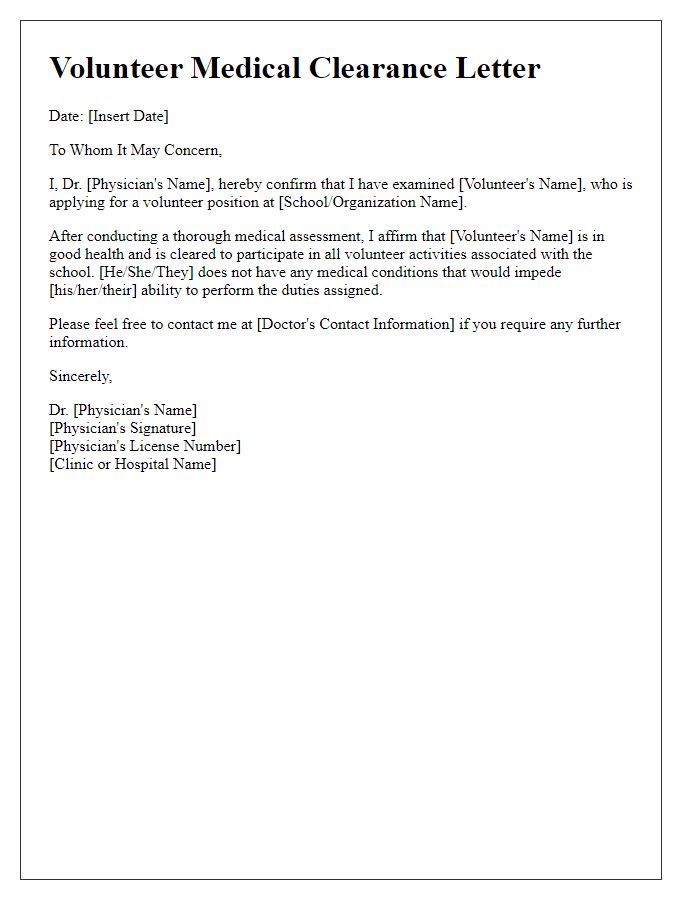
Letter template of volunteer medical clearance for disaster relief efforts.
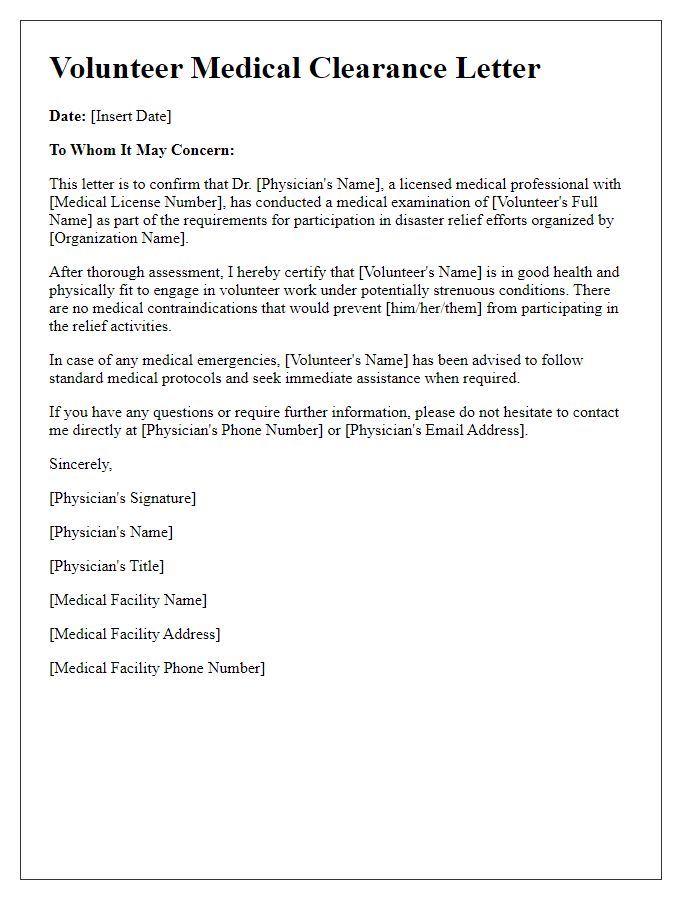
Letter template of volunteer medical clearance for animal rescue services.
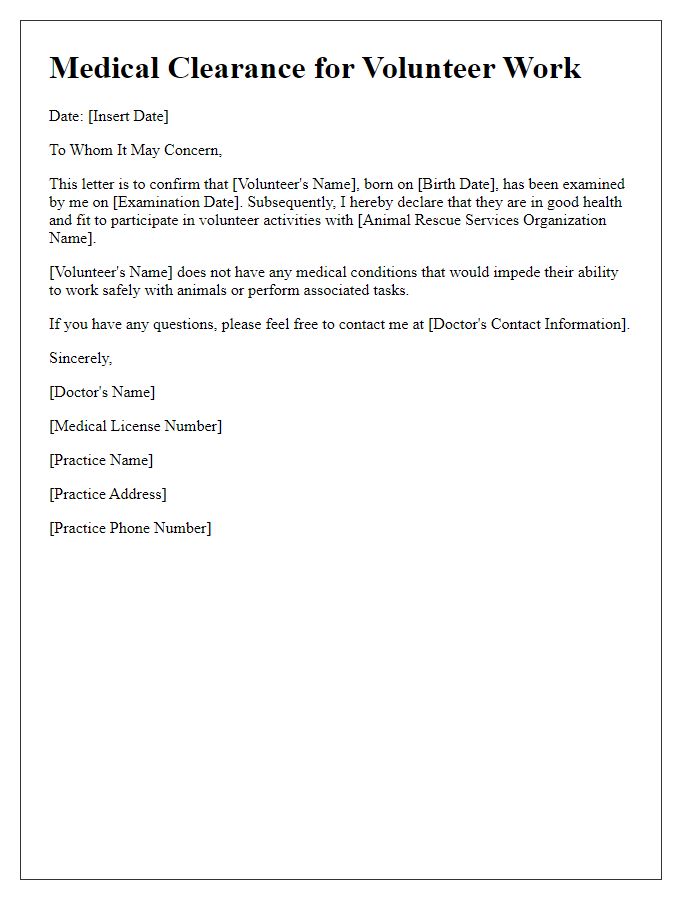

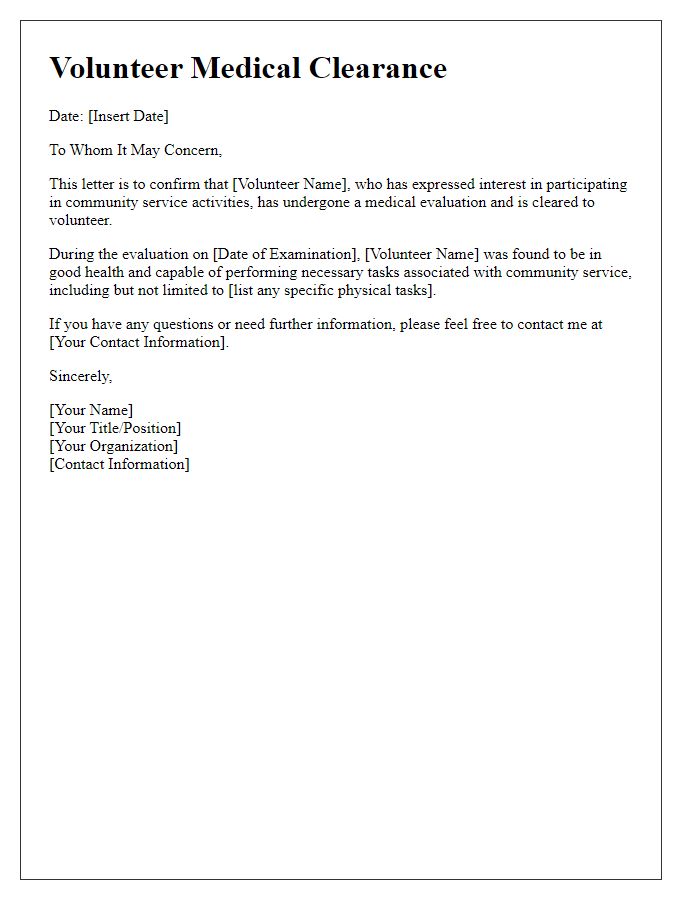
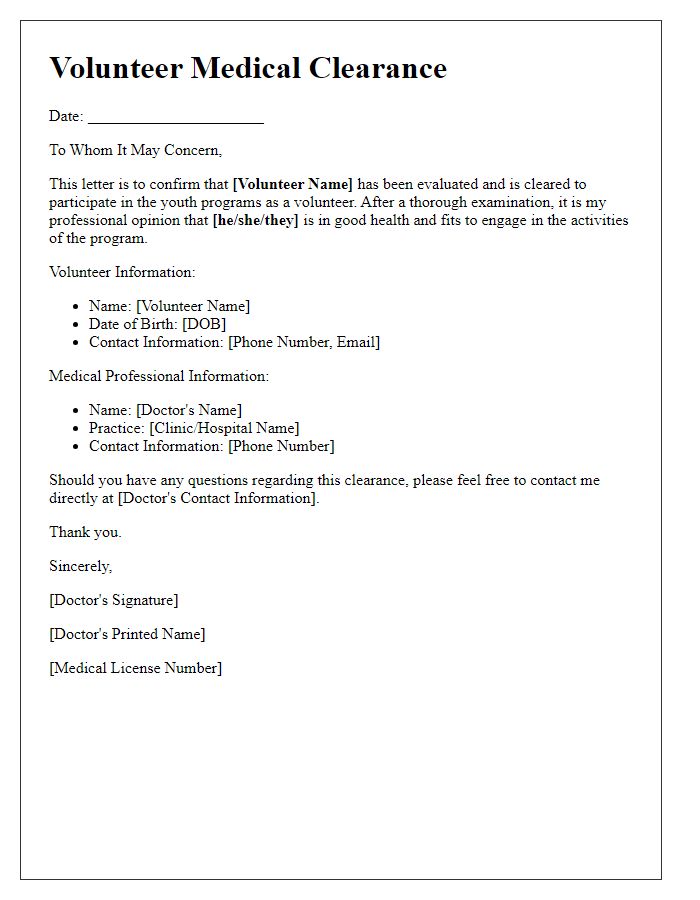
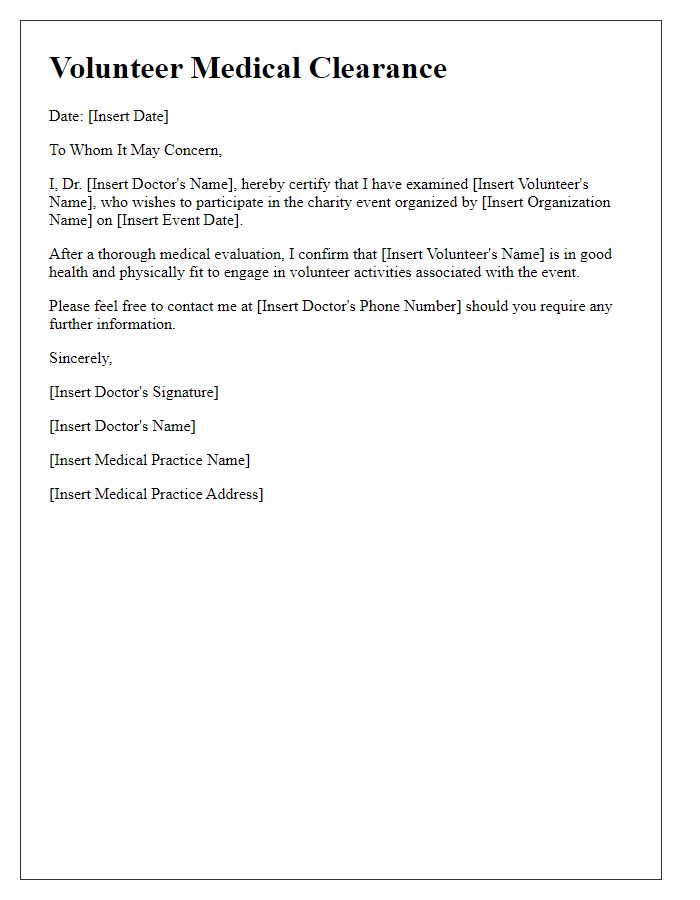
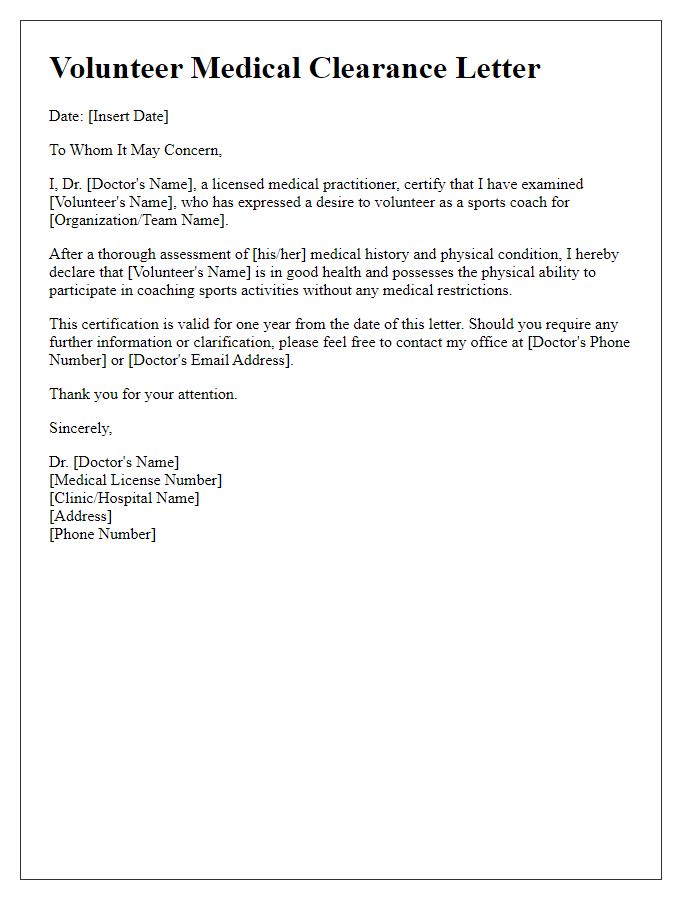
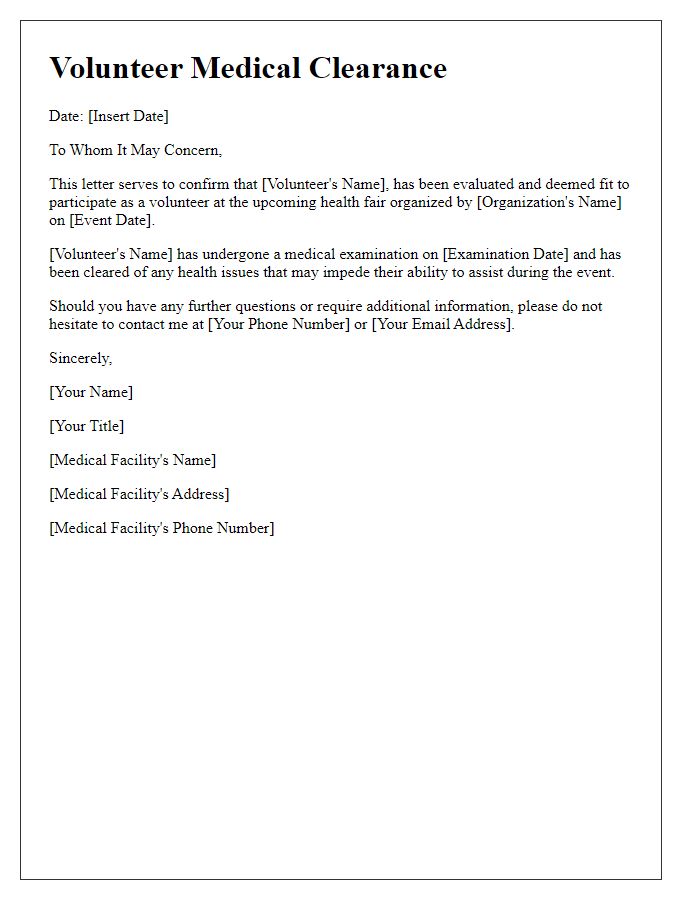
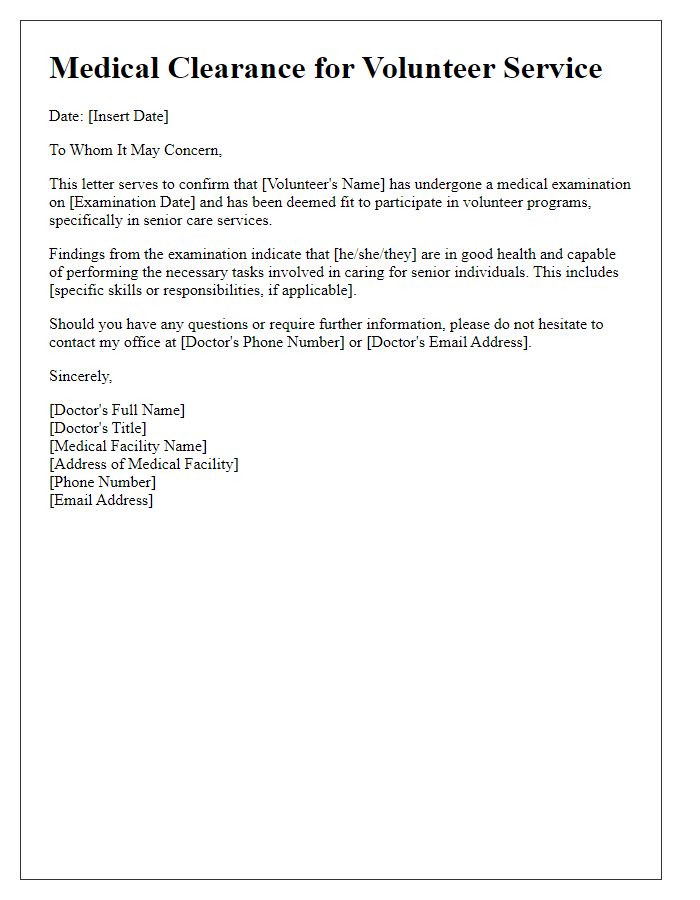

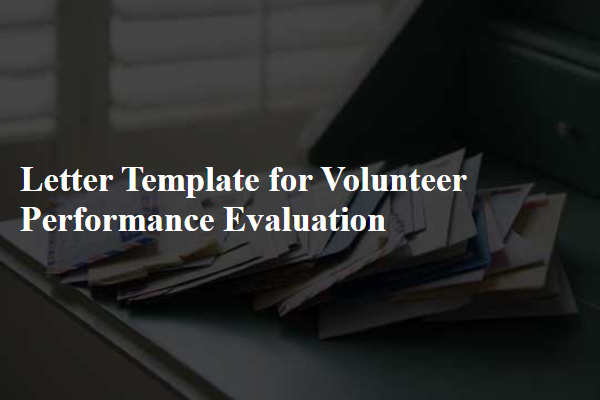
Comments